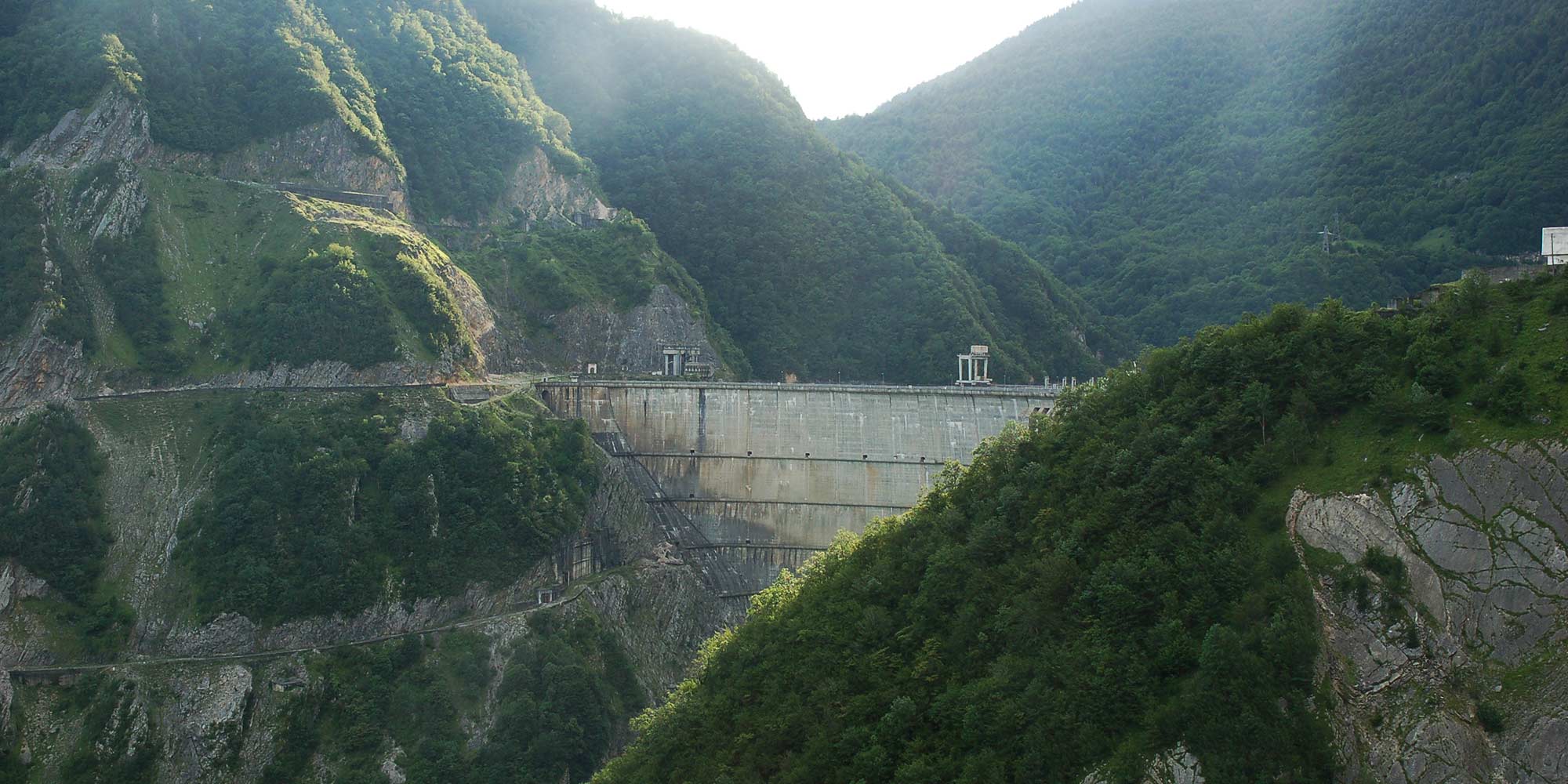New information reveals the disproportionate price that Georgia’s government guarantees to pay for electricity from the Nenskra dam. The increasingly unfavourable economics strengthen calls to finally make the project’s contract publicly available.
Dato Chipashvili, Georgian hydro campaigner | 4 December 2017

The old Enguri dam in Upper Svaneti. Georgia's government plans to build more dams in the region, whatever the cost.
Among the numerous concerns surrounding the Nenskra hydropower project (HPP) is a lack of transparency about the contract between the Georgian government and the project company. Its confidentiality has long been a source of speculation shrouding the controversial billion dollar investment.
The 280 MW Nenskra HPP would be built by JSC Nenskra Hydro, a joint venture between the state-owned Partnership Fund and the South Korean state company K-Water.
International financial institutions are considering financing three quarters of the project’s total costs at over USD one billion. These banks include the European Investment Bank (EIB), the European Bank for Reconstruction and Development (EBRD), the Asian Development Bank (ADB) and the Asian Infrastructure Investment Bank (AIIB).
Without the full details of the contract available it is impossible to analyse the necessity of such a grand infrastructure project. Understanding the potential benefits and whether these outweigh the impacts is a crucial trade-off that has not yet been solved transparently. It is difficult to understand the rationale behind keeping confidential the contract information, since concealing such details feeds further speculation about the project’s impact.
The price puzzle
Also the recently published cost-benefit analysis contains gaps like a comparison with investments in energy efficiency as an alternative to the Nenskra dam. More importantly, it doesn’t really include an analysis of any costs.
Yet it did reveal a guaranteed price of USD 0.08532 per kWh at which the government of Georgia will have to buy electricity from Nenskra – almost twice the current wholesale price (USD 0.047) for electricity bought in Georgia and imported from abroad.
From the supplementary Environmental and Social Impact Assessment (ESIA) – released in March 2017 after the original ESIA from 2015 needed to be redone for lacking sufficient analytical quality – it can be concluded that the state of Georgia is obliged to purchase 1960 GWh of generated electricity annually for no less than the first 36 years of operation, irrespective of the actual demand placed on the grid.
Piecing it all together, Georgia guaranteed to buy almost 2 GWh annually at a price of USD 85.32 per MWh for three and a half decades.
This might turn out to be a long-term burden for the state, especially in a situation where there are no visible guarantees of an affordable electricity price. Moreover, this deal might become an obstacle for exporting locally-produced electricity to countries with lower tariffs (pg. 3).
The exceedingly high price strongly suggests that the deal is simply too unfavourable for Georgia’s taxpayers and is therefore kept under wraps by the parties involved.
What the ESIA does not contain is a scheme for dealing with cost overruns, a possibility that cannot be ruled out and which is concerning for a few reasons. First, the key facilities associated with the project, including transmission lines and access roads are notably absent from this cost estimation, which could mean that the already high cost of the construction – about USD four million per megawatt – would increase further. Second, the estimated cost of the Nenskra project has swollen nearly 50 per cent in the last two years: initially estimated between USD 650-750 million in 2015, costs have risen to USD 1.035 billion according to the AIIB.
Where is the long-term strategy?
A comprehensive, long-term strategic development plan for the energy sector should serve as the baseline for considering any substantial investments like this one to the sector. In the case of Georgia, HPPs receive political backing but little in the way of qualitative analyses of alternatives.
Under these circumstances, it is extremely difficult to justify a billion dollar project with an incomplete cost-benefit analysis, given the questionable economics, the disproportionate electricity price and the impacts of the project on people.
Never miss an update
We expose the risks of international public finance and bring critical updates from the ground – straight to your inbox.
Institution: EBRD | ADB | AIIB | EIB
Theme: Social and economic impacts
Location: Georgia
Project: Nenskra hydropower plant, Georgia
Tags: Svaneti | economic feasibility | electricity market | hydropower
